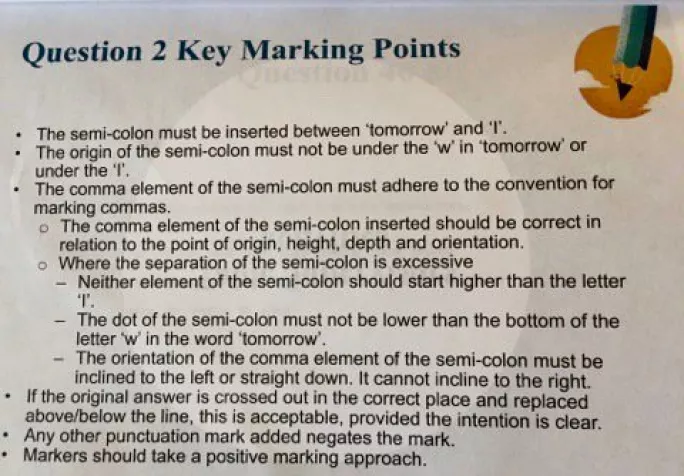The guidance given to the markers of the key stage 2 Sats will not be published because it could be too stressful for teachers, the Standards and Testing Agency has said.
In a letter to teacher Sophie Bee, the STA turned down her freedom of information request for the markers’ guidance on the grounds that it “would not be in the public interest”.
The agency, which runs the tests, considered that publishing the markers’ training materials (MTM) would help in “dispelling myths about the MTM being ‘secret’ or something nefarious”.
However, it found there were five main reasons for refusing to publish the guidance.
These include the concern that disclosure will add to teachers’ workload which “is likely to risk adding to teacher, and in turn pupil, stress” and that “less experienced or less confident teachers” could misunderstand it.
The letter adds that releasing the guidance could “in the future adversely influence classroom-teaching practice, with the risk that teachers will overly concentrate on teaching pupils how to provide acceptable responses to test questions, rather than teaching the wider curriculum”.
Ms Bee posted the letter on Twitter.
Where it received some frank reactions.
The existence of the markers’ guidance came to light earlier this term when teachers questioned why some pupils seemed to have received no marks for correct answers.
In the published mark scheme, for example, teachers were told pupils would get one mark for a correctly placed semi-colon in the sentence: “Come and see me tomorrow I will not have time to see you today.”
But when papers were returned, many found that their pupils had not been awarded the mark, despite having put the semi-colon in the correct place - and took to social media to complain.
It was then revealed that markers had further guidance, saying that the semi-colon had to be a certain height and orientation to be awarded a mark.
Unions called for the markers’ guidance to be published. James Bowen, director of the NAHT Edge union for middle leaders, said that the gap between what teachers thought their pupils would be marked on, and what they were actually marked on, could “erode confidence” that pupils were being assessed fairly.
But the DfE has told Tes that, while it will not publish the markers’ guidance, further guidance on the marking of KS2 Sats will be published next term.
Meanwhile, it was pointed out that some teachers will have seen it - as many of the markers are teachers.
But others questioned whether the decision would really reduce teachers’ stress levels.
But, despite all arguments, one teacher’s dedication to correct punctuation shone through.





